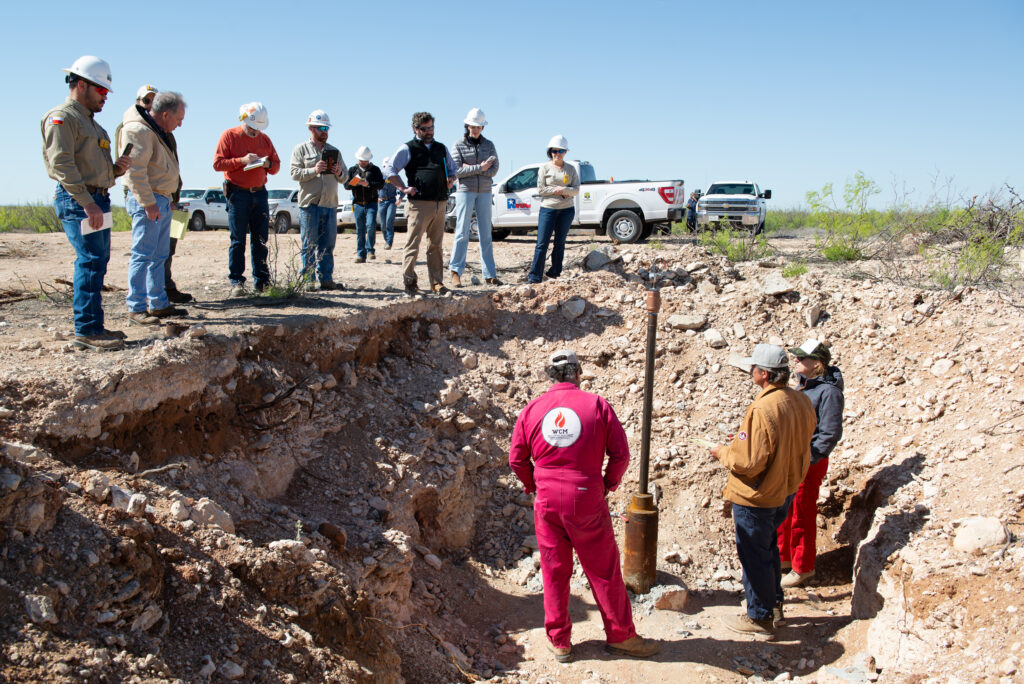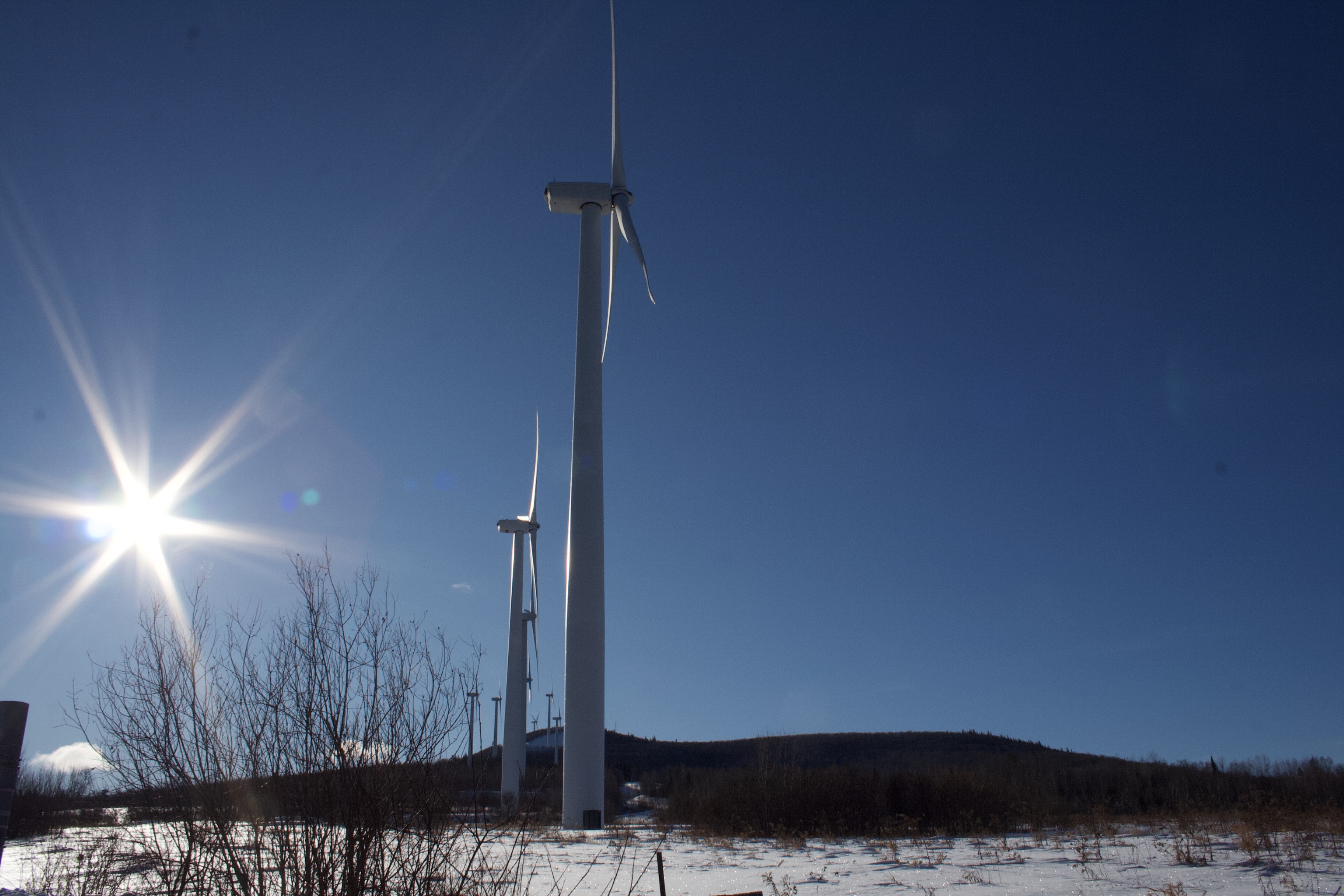Congress is scheduled to vote on two bills this week that would roll back climate regulations issued in the final months of the Biden administration. The agencies that implemented the rules, which limit methane emissions from the oil and gas sector and set efficiency standards for water heaters, expected them to prevent tens of millions of tons of climate pollution in coming decades if left in place.
The votes would be two of the first attempts by the new Congress to use a legislative tool under the Congressional Review Act, which allows lawmakers to nullify certain regulations with a simple majority vote, as long as the president signs the resolution.
Already, Republicans in Congress have targeted 29 final rules enacted in the waning days of the Biden administration with Congressional Review Act resolutions, according to the Center for Progressive Reform, a left-leaning research and advocacy group that has launched a tracker of these resolutions. The act also permanently prevents agencies from adopting “substantially” similar rules in the future without Congressional authority.
GOP lawmakers have targeted climate and environmental regulations in particular—17 out of 41 resolutions introduced so far would repeal rules by the Environmental Protection Agency or Department of Energy, according to the tracker.
We’re hiring!
Please take a look at the new openings in our newsroom.
See jobs
Republicans in Congress have said the regulations are driving up costs for consumers. While the rules impose some costs, Biden administration agencies had said the rules would ultimately save consumers money by preventing wasteful gas leaks and making appliances use less fuel.
One resolution set for a vote would repeal a fee on methane emissions by oil and gas companies. When it announced the final rule in November, the EPA said the fee would reduce methane emissions by 1.2 million metric tons through 2035. Because methane is a highly potent greenhouse gas, that is equal to cutting 34 million metric tons of carbon dioxide over the same period, or the annual emissions of 8 million gas-powered cars.
Supporters of the fee say that in addition to cutting climate pollution, it would save money and create jobs for people working to plug leaky oil and gas equipment. The elimination of the fee could also hurt gas exports because it could make American gas run afoul of European standards for methane leaks.
Losing the fee would be “a big setback,” said Federico Holm, clean energy policy analyst at the Center for Progressive Reform.
But the oil industry and its supporters criticized the fee. After Donald Trump was elected president and Republicans won control of Congress in November, the American Petroleum Institute said that repealing the methane fee was one of its top priorities.
Earlier this month, U.S. Sen. John Hoeven (R-N.D.) and U.S. Rep. August Pfluger (R-Texas) introduced resolutions to repeal the fee. Hoeven said in a statement that “we are working to get our nation back on the right track, providing needed regulatory and tax relief to deliver real cost savings to American energy producers and consumers.”
With the bill slated for a vote this week, Amanda Eversole, executive vice president and chief advocacy officer for the American Petroleum Institute, said in a statement, “We look forward to continuing to work together to fully repeal this punitive tax and advance a pro-consumer regulatory approach that embraces U.S. energy.”
The other resolution set for a vote would repeal efficiency standards for tankless water heaters set by the Energy Department. The department said the rule would save consumers $112 over the life of a water heater, savings that would take an estimated nine years to reap given higher up-front costs. While compliance with the rule would cost the industry $20.4 million, the department said, it would reduce carbon dioxide emissions by 32 million metric tons over 30 years.
The Air-Conditioning, Heating, and Refrigeration Institute, which represents appliance manufacturers, is opposed to repealing the regulation. Francis J. Dietz, the institute’s vice president for public affairs, said his members had worked with the Energy Department to craft the new standards.
“Once that happens, manufacturers start planning for how they are going to meet those new standards,” Dietz said. “If you have a situation where that process is upended, and all those plans go out the window, then that is bad for manufacturers.”
But the American Gas Association, which represents gas utilities, opposed the regulation, which was finalized last month. And Trump has been a vocal critic of appliance efficiency standards. Last week, U.S. Energy Secretary Chris Wright called out the water heater rule during a speech at the Conservative Political Action Conference, saying it would make one type of popular water heater “illegal” and sink the company that makes it.
Congressional Review Act resolutions, which can be used only on regulations enacted within the last 60 working days, can tie the hands of agency staff. The methane fee was required by the Inflation Reduction Act, the Biden administration’s signature climate legislation, while the water heater standards are also required by law. In both cases, then, agencies would be compelled to replace the rules if they are repealed by Congress.
But the Congressional Review Act’s prohibition against “substantially” similar rules force agencies to walk a fine line, said James Goodwin, policy director for the Center for Progressive Reform, in an email.
“The upshot is that the eventual replacement will be ‘weaker,’” Goodwin said.
About This Story
Perhaps you noticed: This story, like all the news we publish, is free to read. That’s because Inside Climate News is a 501c3 nonprofit organization. We do not charge a subscription fee, lock our news behind a paywall, or clutter our website with ads. We make our news on climate and the environment freely available to you and anyone who wants it.
That’s not all. We also share our news for free with scores of other media organizations around the country. Many of them can’t afford to do environmental journalism of their own. We’ve built bureaus from coast to coast to report local stories, collaborate with local newsrooms and co-publish articles so that this vital work is shared as widely as possible.
Two of us launched ICN in 2007. Six years later we earned a Pulitzer Prize for National Reporting, and now we run the oldest and largest dedicated climate newsroom in the nation. We tell the story in all its complexity. We hold polluters accountable. We expose environmental injustice. We debunk misinformation. We scrutinize solutions and inspire action.
Donations from readers like you fund every aspect of what we do. If you don’t already, will you support our ongoing work, our reporting on the biggest crisis facing our planet, and help us reach even more readers in more places?
Please take a moment to make a tax-deductible donation. Every one of them makes a difference.
Thank you,
















